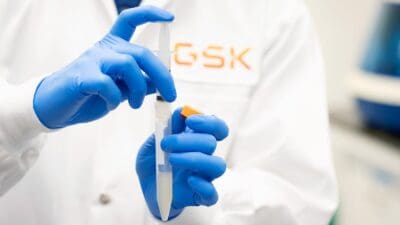It’s been a little over two years since the share price of FTSE 100 oiler Royal Dutch Shell (LSE: RDSB) hit a low of just under £13. That came as investors fretted over too much of the black stuff being available and the timing of a proposed (now completed) merger with rival BG.
Since then and thanks to a number of developments — the most recent being the rise in political tensions following the suspected chemical attack in Syria — the price of crude has almost tripled, generating excellent returns for the company’s newer owners. Those wise or fortunate enough to have invested back in January 2016 would have roughly doubled their money by now — yet more evidence that buying when others are fearful can often pay off so long as you’re prepared to take a contrarian view, sit on your hands and feel a little uncomfortable for a while.
But can this kind of performance last? Today’s bullish first-quarter update would suggest so.
Passive income stocks: our picks
Do you like the idea of dividend income?
The prospect of investing in a company just once, then sitting back and watching as it potentially pays a dividend out over and over?
If you’re excited by the thought of regular passive income payments, as well as the potential for significant growth on your initial investment…
Then we think you’ll want to see this report inside Motley Fool Share Advisor — ‘5 Essential Stocks For Passive Income Seekers’.
What’s more, today we’re giving away one of these stock picks, absolutely free!
Strong earnings
Thanks to the aforementioned rise in the price of oil, profits rose 69% to $5.7bn over the first three months of the new financial year, compared to $3.4bn achieved in the same period in 2017. This was also considerably higher than the $3.1bn achieved in the previous quarter. With one-off items taken out, earnings came in 42% higher at $5.3bn — higher than analysts were expecting.
A significant proportion of this success can be put down to a larger contribution from the FTSE 100 constituent’s Integrated Gas and Upstream divisions. This performance was, however, impacted by lower earnings from Shell’s Downstream business as a result of “less favourable refining market conditions and lower contributions from trading“. Here, underlying profits fell from to $1.7bn, from $2.5bn in Q1 2017.
While acknowledging that today’s encouraging numbers were in part due to the rise in oil and gas prices, CEO Ben van Beurden added that the company “continues to upgrade” its portfolio and that Shell’s “competitiveness and resilience” remain two its greatest assets. He went on to remark that the company was also making “good progress” with its $30bn divestment programme.
At $9.4bn, cash flow from operating activities was very slightly lower than over the same period in 2017 ($9.5bn), which may explain why Shell’s stock fell 2% in early trading this morning.
Dependable dividends
One of the biggest draws to the largest company in the FTSE 100 is its dividends. Famously, Shell hasn’t cut its annual payouts since the Second World War and doesn’t look like doing so anytime soon.
Over Q1, the total amount distributed to shareholders in the form of dividends was $4bn, covered by free cash flow. The quarterly payout was kept at 47 cents per share, with the company reiterating its intention to buy back “at least $25bn” of its shares over the next two years.
Analysts estimate that Shell will grow earnings per share by 26% over 2018, meaning that shares currently change hands for a little under 15 times forecast earnings. That’s not ludicrously expensive, but nor is it screamingly cheap.
Of course, the success of all companies in this industry remains dependent on something they can’t control. So long as they believe that the price of black gold will continue to stabilise, however, I certainly wouldn’t blame investors from continuing to add to their positions at the current time, so long as their portfolios remain sufficiently diversified.







